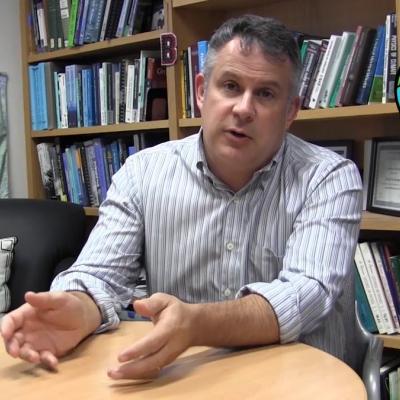
Thursday, September 26, 2019
12:00 to 1:30
The Faculty Club
Biography
Baylor Fox-Kemper is associate professor of earth, environmental, and planetary sciences at Brown University. He is a physical oceanographer and climate modeler specializing in the representation of turbulent and wave processes in the climate system. Professor Fox-Kemper is a coordinating lead author of Chapter 9, "Ocean, Cryosphere, and Sea Level Change" in the upcoming Sixth Assessment Report of the Intergovernmental Panel on Climate Change. Professor Fox-Kemper is the co-chair of the Ocean Model Development Panel of CLIVAR at the World Climate Research Program, and co-chair of the Ocean Model Working Group at the National Center for Atmospheric Research. He is a recipient of an NSF CAREER award, has been a member of two NSF Climate Process Teams, and received the 2011 American Geophysical Union Ocean Sciences Early Career Award. He is currently under contract on a book titled: Vital Mathematical Methods for Earth Scientists, which introduces undergraduates to quantitative research.
Overview
Considering the human impacts on the climate system is fraught. After about a century of scientific investigation into 1) the existence of modern climate change, 2) the linkage between human activities and climate change, and 3) the potential for mitigation of our impact and adaptation to the coming changes, the global response and readiness preparations are neither commensurate with the problem nor comforting. The global, interconnected nature of the problem makes it tricky to decide how much needs to be done how fast and by whom: Is this a crisis measured in geological time? An existential threat to most species but probably not all? An overhaul of the economy or invalidation of modernity? Or just a tweak to continuing progress in energy, personal spruceness, collective action or governmental regulation? Who is to blame , who is at risk and who is in control?
In this talk, I'll share some of the clearest signals and lessons of climate change which are those observed and projected in the oceans and cryosphere. I'll also emphasize how the Brown community--particularly students and IBES--have changed my perspectives on equity, justice, and other political aspects of climate change. I'll contrast these insights against the approach and self-determined role of the IPCC Working Group I approach emphasizing the physical science aspects of the problem. The deluge combines the present and coming physical, geological, political, emotional, and psychological.
